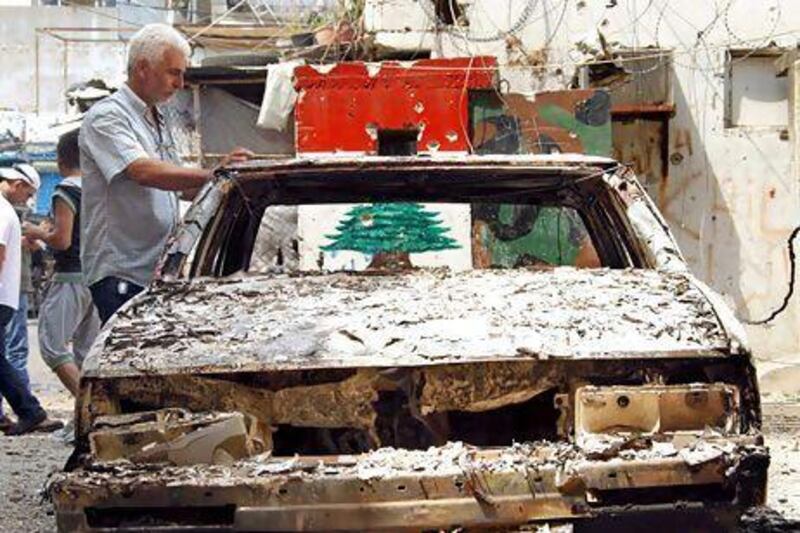I was having lunch in the north of Lebanon last Sunday when news of the fighting in the southern city of Sidon came through. It had been an idyllic day at the US$11 million Ixsir vineyard, part-owned by the automotive guru Carlos Ghosn, the chairman and chief executive of Nissan and Renault, and which represents all that is good about Lebanese innovation and commercial daring.
Locating it in Batroun and not the Bekaa, the country's agricultural hub, was a bold move, as was the decision to build a "green" winery.
Batroun is now the undisputed second region of Lebanese wine making and the winery was nominated by CNN in 2011 as one of the 12 most important green architectural buildings in the world.
The setting amid a centuries-old stone house, the vines and the olive trees under white canvas awnings was everything you'd expect from an early Lebanese summer's afternoon and yet 75 kilometres away Lebanese were killing fellow Lebanese. These are the two faces to Lebanon: one vibrant and generous, the other a peek into a very dark abyss.
Sidon, for those who care to know, is 40km from Beirut. It has a population of about 250,000 and relies on fishing and agriculture as well as a bit of mall-driven retail. It is named after Noah's great grandson. But it is also the birthplace of Rafiq Hariri, the slain former prime minister whose vast fortune and international contacts were the high-octane mix in the fuel that drove Lebanon's post-war recovery and which should have propelled us out of our sectarian quagmire and on to a trajectory of prosperity and hope.
Sidon should be picturesque, but it isn't. This is in part because of a five-storey mountain of rubbish on the outskirts of the town that has become so big that no one quite knows what to do about it.
But Sidon, in terms of world history, is colossal. Established as a community somewhere around 5000BC, it is arguably the oldest Phoenician city-state and one of the old places on Earth - one that established what would become Lebanon's much-admired entrepreneurial spirit. Loading the triremes galleys with cloth made from the prized purple dye extracted from the Murex snail, jewellery, glass, wine, perfumes and wood, the Phoenicians would set off across the Mediterranean to Carthage and all stops west to the Iberian Peninsula and beyond. They were traders, agents and market makers. Sound familiar?
And if you dig, literally dig, you can reach into and touch Sidon's glorious past. Under a Shia cemetery, next to the home of the former prime minister Riyadh Al Solhoverlooking the sea, is a tell, the foot of which is overgrown and littered with rubbish. Archaeologists call it Murex Hill.
Because if you wade through the thorny undergrowth and the discarded soap powder containers and claw away at the side of the hill, you will eventually grab a handful of 3,500-year-old empty Murex, detritus from the millennia-old Phoenician dye trade.
They are the dregs of one of the most powerful trading empires in history. In another country the tell would be a landmark, neatly preserved with a sign explaining how fishermen would catch their haul, empty the shells of their precious contents and, over time, create a pile that became a mound. Not, sadly, in Lebanon, a country that is so wrapped in the present, it forgets its past.
Sidon was one of the flashpoints of the 1975-90 civil war, but I am trying to resist making the comparison. You feel you have an obligation to be upbeat. You sense it is too easy to moan and complain, so you try to hunt out the bright spots because it's there, not in the shade of gloom and pessimism that the economies grow.
And yet I nearly didn't write this week because I feared I have nothing to say. But then Lebanon always has a message and maybe those who would undo what hope there is for this tiny trading nation should go to Murex Hill and feel the dirt, not to mention the weight of history.
Michael Karam is a freelance writer based in Beirut





